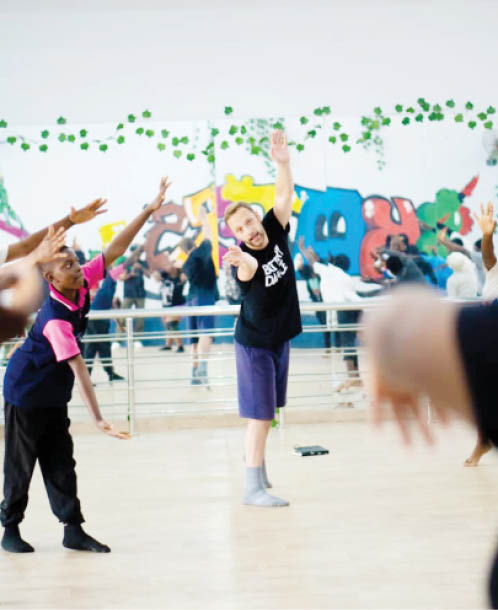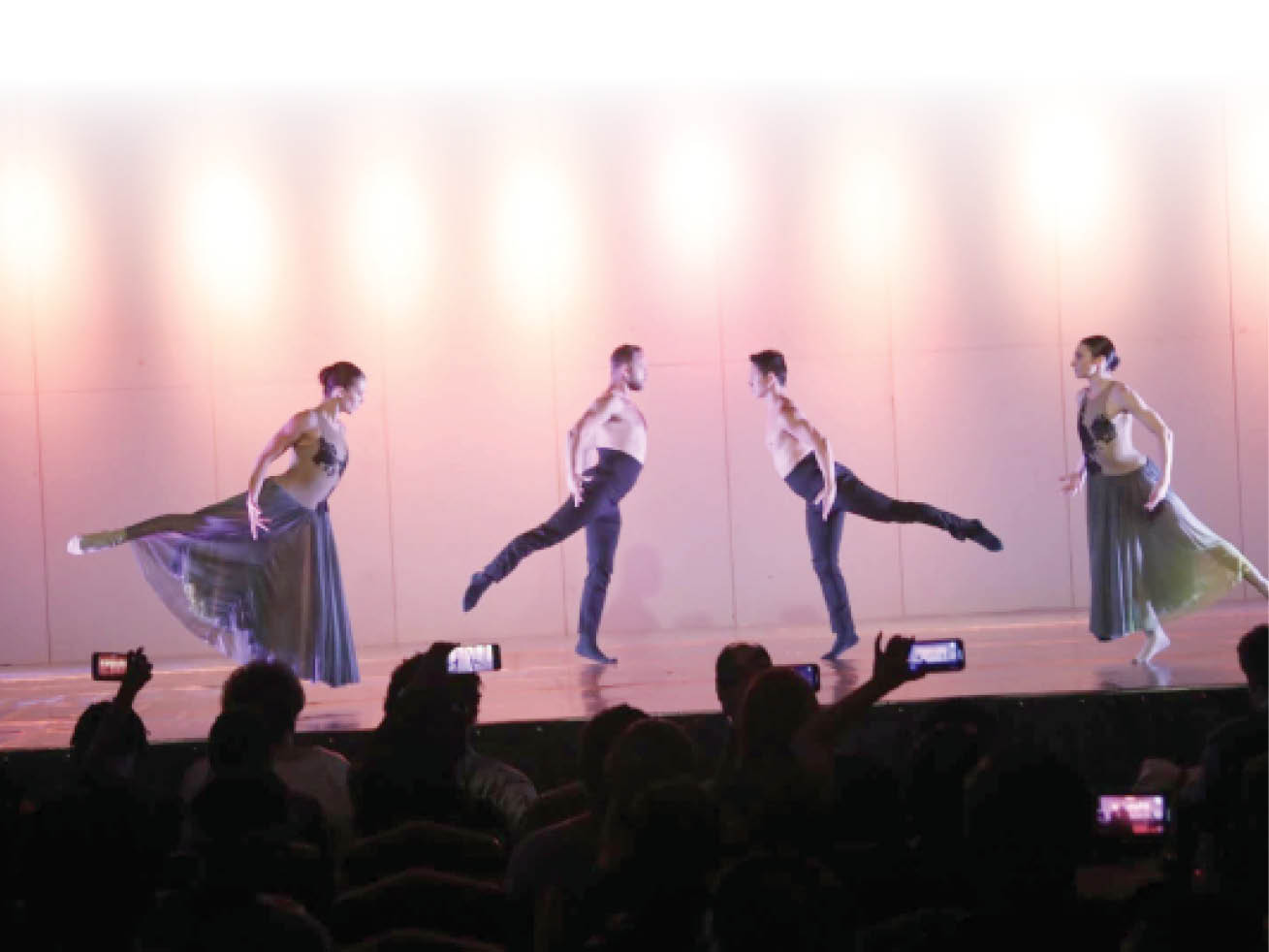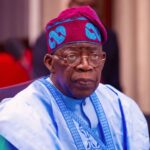The internationally renowned Battery Dance Company, famous for captivating choreography and breathtaking performances, with support from the U.S. Mission and in partnership with the Society for the Performing Arts in Nigeria, visited Nigeria for a Dancing to Connect Program. Battery Dance Company, founded in 1976, is an innovative dance company based in New York City. Recognized for its artistic excellence and commitment to cultural diplomacy, the company has performed in over 70 countries and collaborated with diverse artists from around the globe. Through their performances, educational programs and workshops, they aim to inspire, educate, and connect people through the universal language of dance. Daily Trust Saturday caught up with the dance team while in Nigeria.
What does dance mean to you and your team?
Dance is a way of life for me from the age of 19 straight through until today, and I know that the same is true for each member of my team. We are all people who have many interests in life, but we find a way to incorporate everything into our work in dance, whether through performance, creation, education, collaboration of social activism. It is all there and when we are engaged in dance in any capacity, we feel fulfilled as human beings.
What do you find exciting about the dance techniques and culture in Nigeria?
For me, the most immediate aspect of Nigeria that hit me from day one is the people. There is so much passion, promise, ambition, focus and generosity of spirit among Nigerians of all ages. I would also say that Nigerians, at least those with whom we have been working in Lagos and Abuja, have a great ability and facility for dance. It is a truly outstanding trait and distinguishes Nigerians from other people who have to break through barriers in order to dance.
- 2023 polls: INEC expresses worry over result management crisis
- Alleged N7.9bn fraud: Oduah, others arraigned, plead not guilty

How did the partnership between Battery Dance Company, the U.S. Mission, and the Society for the Performing Arts in Nigeria come about for the Dancing to Connect Program?
I would like to add Krump Studios to the question because here in Abuja, Krump Studios is our local partner as SPAN was in Lagos. The background of Battery Dance’s relationship with Nigeria is through our long friendship and partnership with Sarah Boulos and the organization she founded in Lagos – SPAN. We have had a bilateral relationship with SPAN for over 10 years. Our relationship with Jemima Angulu and Krump Studios is a new one, but we spent months on zoom calls and e-mails, sharing our philosophy and laying the groundwork for the robust programs we are doing in Abuja. Battery Dance has worked with U.S. Missions in 70 countries around the world. We are known for the quality of our artistry as well as our deep dedication to education and sharing. We call it “Artistic Excellence and Social Relevance”. Without both sides, we would feel incomplete. This encouraged the U.S. Mission to provide a grant for us to bring our signature arts education program ‘Dancing to Connect’ to Nigeria. Within the Embassy and the Consulate, there are officers and staff members who understand the power of the arts to change lives. We are all working in teamwork to achieve the best results possible.
What specific contemporary dance techniques were covered in the workshops offered by Battery Dance Company in Abuja and Lagos?
I would turn this question around and say that we don’t teach technique. We unlock creativity. Our workshops are based on the belief that everyone is creative, everyone is a dancer whether they know it or not. Our job is to provide a pathway for young people to unlock their creativity, to give them the tools of choreography so that they can express their stories through dance.
Could you tell us more about the team of Battery Dance instructors and their approach to engaging youth in creativity and team building through modern dance?
Each of the Battery Dance teaching artists is a superior dancer with tremendous skill, artistry and background in performing, creating and teaching. Through their work with Battery Dance, they have learned the methodology of Dancing to Connect – and with their big hearts and strategies for teaching people of various ages and range of experience, they approach the workshops in their own way. I visited 5 workshop groups in Abuja over the last two days and each one was different from the others. This reflects the style, character and individuality of my team of dancers who are of soloist quality but also work well as a team. I don’t micro-manage them. They don’t need that from me. They have the maturity, motivation and talent to set things in motion themselves and in doing so, I saw the love and mutual respect that had grown up in only two days between the Nigerian participants and the Battery Dancers.
How does the Dance to Connect initiative promote cultural exchange, artistic collaboration, and community enrichment through dance? Can you provide examples of its impact?
Each and every participant comes away with a renewed sense of self, empowerment and the acknowledgement of professionals from New York that they are worthy, gifted and deserving of attention and support.
In what ways does Battery Dance Company showcase American innovation and diversity in the performing arts?
We exemplified the DIY spirit of Americans. No one delivered resources and space to Battery Dance in the crowded city of New York. We earned our place during the 48 years of hard work and dedication. Our team is diverse as is our Board of Directors and Staff. This is something baked into our DNA. We didn’t jump on the bandwagon of diversity and inclusion – it has been our calling card since the very beginning.
How has Battery Dance Company been inspired by Nigerian dancers and cultural leaders in their previous visits to Nigeria?
Sarah Boulos and the dancers of SPAN have shown us what the combination of talent, vision and community solidarity can achieve. From our earliest experience in Lagos in 2011, we were deeply touched and recognized that something very special was happening in Nigeria and we hope that this visit to Lagos and Abuja will have many repercussions in the future. Jemima and Thomas from Krump Studio and the 10 dance leaders with whom I met recently are big spirited people who use their dance talent to uplift young people who may not have had easy lives. They reach out with their love and optimism to invest in the future of the youth of Nigeria. I hope that the Nigerian society and government officials will recognize the incredible service they are performing and will invest in the arts sector the way the government in the U.S. does.
What are the expectations and goals for expanding people-to-people dialogue and cultural ties between Nigeria and the United States through Battery Dance Company’s workshops and performances in Nigeria?
We are already thinking of continuing our collaboration remotely, directing interested dancers to make use of the thousand classes of all kinds that we created during the pandemic that can be found here: https://batterydance.org/dancetv/ We also hope that we will be able to present Nigerian dancers at our annual Battery Dance Festival in the future. The dancers here will require support from the Nigerian government to understand their value in boosting awareness of Nigeria in the realms of tourism, investment in the creative economy and other ways. Culture can be a powerful engine for economic empowerment. In the U.S., for every dollar the National Endowment for the Arts invests, almost 60 dollars is unlocked in private and other public support, yielding benefits across every district of the country. I hope the talented and deserving dancers here can get the recognition and support that will help them pay back benefits to the country.
How does the Battery Dance Company’s tour in Nigeria contribute to the U.S. Mission’s cultural diplomacy efforts?
Response by U.S. Embassy Cultural Affairs Officer Julia McKay – “Battery Dance’s ‘Dance to Connect’ program in Nigeria is the perfect example of how cultural and people-to-people ties can bring Nigerians and Americans closer together. Through exchanges with U.S. performing artists, both in-person and virtual, our goal is to empower Nigerians, especially young people, to pursue their artistic ambitions, learn new techniques, innovate, develop marketable skills, and freely express their thoughts and diversity. Dance also requires physical fitness, health, teamwork, self-reliance, mutual understanding, and peaceful co-existence, all important values that our two countries support. We plan more such partnerships and dialogues in the future and are open to all creative ideas and suggestions.”

 Join Daily Trust WhatsApp Community For Quick Access To News and Happenings Around You.
Join Daily Trust WhatsApp Community For Quick Access To News and Happenings Around You.


